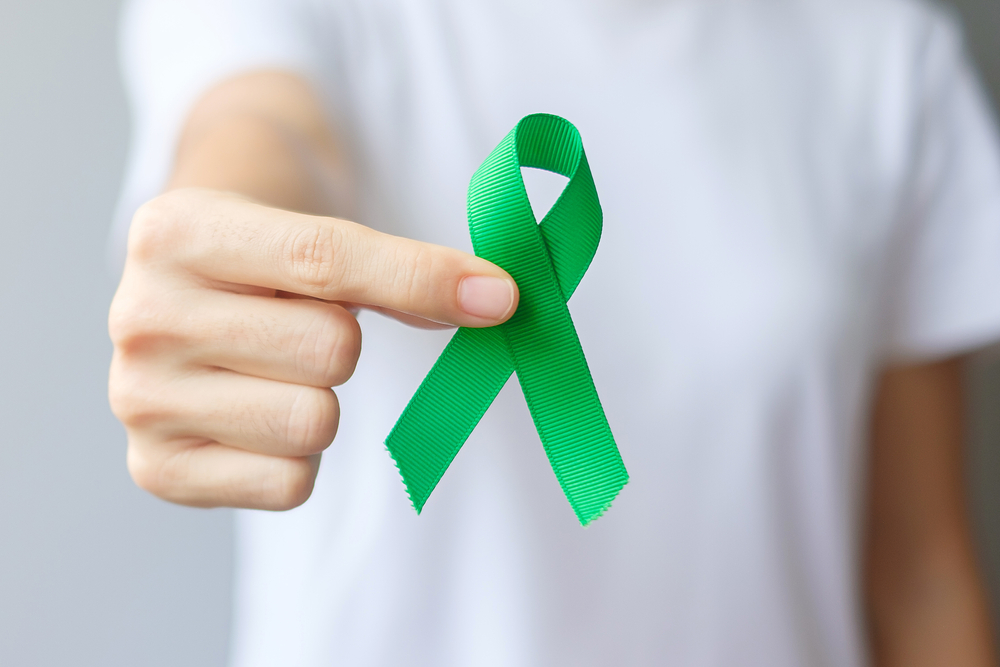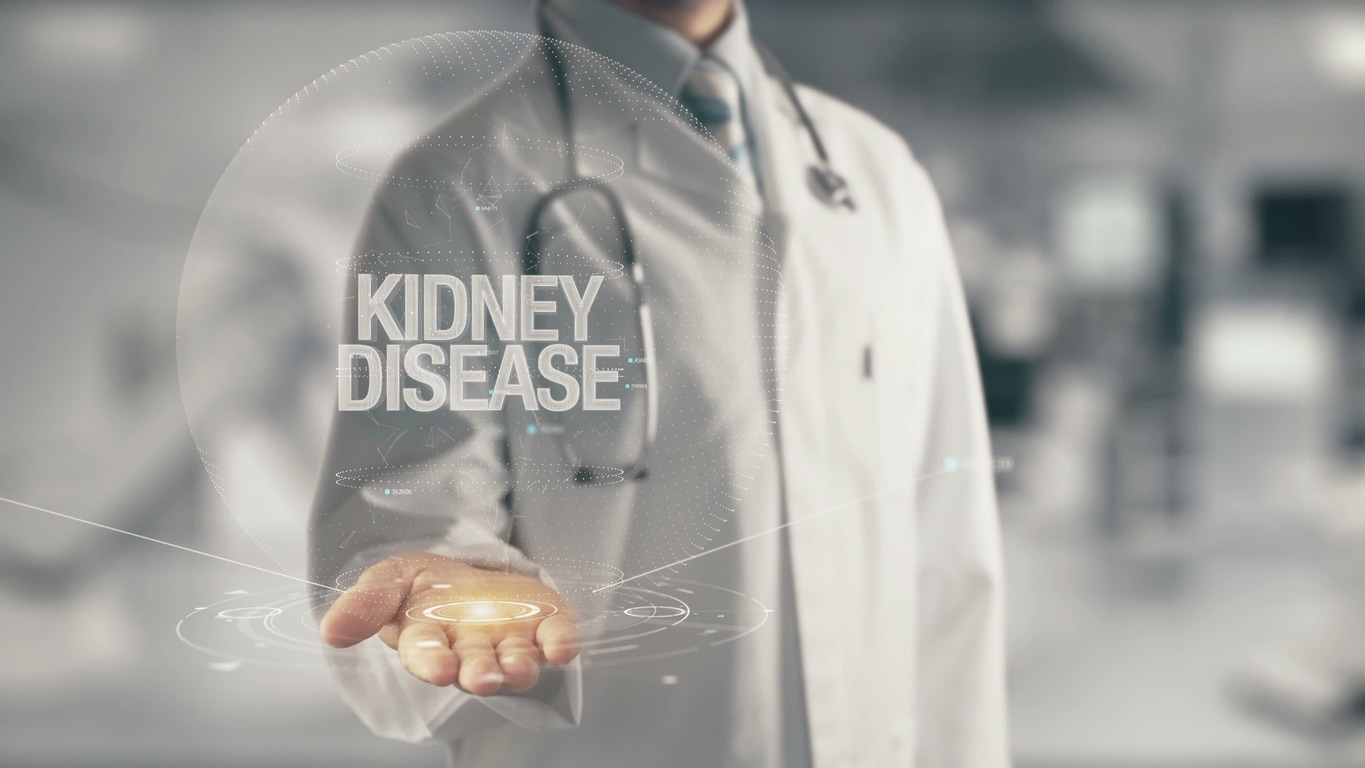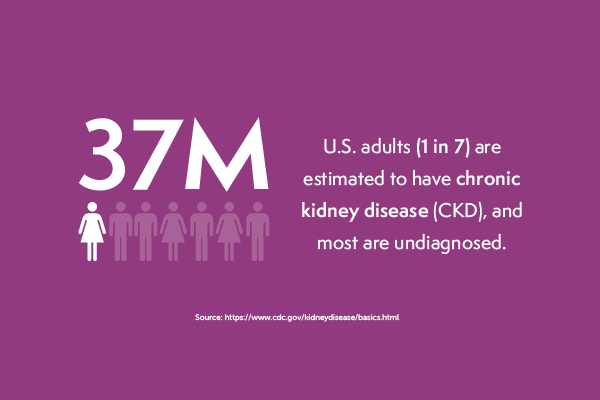Most Americans are familiar with the risks for cancer, heart disease, and lung disease. But there’s another chronic illness that many people aren’t familiar with — even though some of them have it.
It’s Chronic Kidney Disease (CKD) and about one in seven adults in the United States is estimated to have it. March is Kidney Health Month, so there’s no better time to take a few minutes to learn about CKD and how to prevent it. Let’s start with the basics.
What do the kidneys do?
Your two kidneys are located on either side of your spine below your ribs. Even though they’re relatively small – about the size of your fist – they’re some of the hardest working organs in your body. The kidneys are basically filters, clearing waste and extra fluid from your system. They also help balance chemicals in your body, make hormones to regulate key functions including your blood pressure, and keep your bones healthy.
How do you get CKD?
CKD is a condition where your kidneys are damaged and don’t work properly. Diabetes and high blood pressure cause about two-thirds of CKD cases. When you have diabetes, you have too much glucose in your system which makes it hard for your kidneys to function. High blood pressure can damage blood vessels in the kidneys so they don’t work as well.
As your kidneys’ ability to filter your blood diminishes, waste can build up in your system and cause complications including high blood pressure, stroke, heart disease, anemia, and nerve damage. In advanced stages of the disease, the kidneys may stop working. If that happens, the patient must either go on dialysis, a process that replicates the kidney’s function and removes toxins and excess fluid from the system, or have a kidney transplant. Government statistics from 2020 show that more than 91,000 people were on the waiting list for a kidney transplant.
What are the symptoms of CKD?
CKD is a sneaky disease because it can progress to advanced stages without causing any severe symptoms. That’s one reason why so many people are living with the disease right now but don’t know it. Common CKD symptoms include:
- Feeling tired or weak
- Itchy skin
- Nausea and lack of appetite
- Nighttime muscle cramps
- Swelling in the feet and ankles
- More frequent urination at night
How is CKD diagnosed?
To screen for CKD, your doctor will conduct specific blood and urine tests. Because early-stage CKD doesn’t tend to cause symptoms, it’s important to know if you have common risk factors for the disease including:
- Diabetes
- Heart disease
- High blood pressure
- Obesity
- Family history of CKD
If you have one – or a few of these – be sure to have regular check-ups with your doctor for early disease detection.
Is there treatment for CKD?
There isn’t a cure for CKD and damage to the kidneys cannot be reversed. However, doctors can manage some symptoms including high blood pressure and swelling with medications. If you have early-stage kidney disease, you can help slow damage to your kidneys through a special diet, exercise, not smoking, managing your medications, and working closely with a kidney doctor called a “nephrologist.”
Stop CKD before it starts
When it comes to CKD the best thing you can do is prevent it. Because high blood pressure and diabetes are the two most common causes of CKD, it starts with managing both by working with your doctor and making lifestyle changes. You can take these steps today to help protect yourself against CKD:
- Eat a healthy diet that’s low in sodium, fat and added sugar
- Stay active -- try to get 30 minutes of exercise a day
- Don’t smoke
- Manage your weight
If you have CKD, your doctor may recommend a “renal diet,” which is a balance of foods and nutrients designed to slow damage to the kidneys. Getting a renal diet just right can be tricky, which is why many CKD patients depend on the renal-friendly meals from Mom’s Meals®



